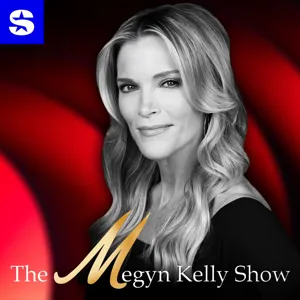Podcast Summary
A young conservative's critique of liberalism and communism at Yale: William F. Buckley's groundbreaking book set the template for conservative campus critique, detailing his experiences with challenges to his beliefs in Christianity and free enterprise at Yale, foreshadowing a genre of conservative writing.
"God and Man at Yale," written by William F. Buckley in 1951, was a groundbreaking book that set the template for conservative campus critique. Buckley, a Yale graduate and the founder of National Review, wrote the book as a 24-year-old, detailing his experiences with liberalism and communism at the university. The book's complaints about Yale's politics and academics foreshadowed a genre of conservative writing that would emerge in the following decades, including works by Alan Bloom, Allan Carlson, and others. Buckley arrived at Yale expecting to find like-minded individuals who shared his respect for Christianity and free enterprise, but instead encountered challenges to his beliefs. The book's themes of secularism and collectivism continue to resonate with conservatives today, making "God and Man at Yale" an influential and enduring work.
Yale's accountability to alumni and promotion of values: Buckley's argument for Yale promoting values based on alumni beliefs lacks a solid foundation and raises ethical concerns due to its relativistic nature.
The book "Education and the Intellectual" by William F. Buckley argues for Yale's accountability to its alumni, suggesting that the university should promote the values of Christianity and the free market system based on the alumni's beliefs. However, this argument is problematic as it is relativistic in nature, as Buckley never advocates for teaching truth or objective values. Furthermore, this perspective raises ethical concerns, as it could potentially justify universities promoting outdated or harmful beliefs. Ultimately, Buckley's argument lacks a solid foundation and fails to effectively address the perceived issues with higher education. Instead, it perpetuates the idea of moral relativism that he criticizes.
Yale's religious atmosphere vs lack of religious education: Buckley criticizes Yale for having a religious atmosphere but not effectively promoting religious messages to students, questioning its authenticity
Despite the apparent religious influence at Yale during the post-war era, as described in William F. Buckley's book "God and Man at Yale," the author criticizes the institution for not effectively promoting religious messages to students. Buckley mentions quotas for Jewish and Catholic students, but he does not address the religious quotas in detail. In the first chapter, Buckley discusses the prevalence of religion at Yale, specifically the large Religion department and the popularity of Old Testament courses. However, he also notes that the chaplain, who teaches the most popular religion course, does not actively promote Christianity. This contradiction between the religious atmosphere and the lack of religious education raises questions about the authenticity of Yale's religious commitment. Buckley's argument, which is critical of the university's perceived lack of religious influence on students, sets the stage for modern conservative discussions on academic freedom and the importance of teaching traditional values in education.
Buckley's Frustration with Lack of Christian Teaching at Yale: Buckley's critique of Yale professors for not promoting Christianity lacked logical coherence, highlighting the need for clear reasoning when challenging deeply held beliefs, and emphasizing the importance of protecting intellectual development.
Buckley's book "God and Man at Yale" expresses his frustration with what he perceived as a lack of overt Christian teaching in certain academic departments at Yale University during the 1950s. He believed that professors should be more openly promoting Christianity, but instead, found that some were respectful of all religions or even atheistic. Buckley's criticism, while coming from a place of deep religious belief, lacked coherence and seemed to be more of a complaint about the changing cultural landscape rather than a logical argument. His approach proved the need for clear and persuasive reasoning, especially when challenging deeply held beliefs. The book also highlighted the importance of protecting the intellectual development of students, even if their beliefs differed from one's own.
William F. Buckley's concerns about secularization of Ivy League universities: Buckley criticized secular values in Ivy League universities, expressing concerns over lack of Christian influence in academia and on-campus services.
William F. Buckley's book "God and Man at Yale" expresses his deep concerns about the secularization of Ivy League universities in the 1950s. He felt that institutions like Yale were abandoning their Christian roots and promoting secular values. Buckley criticized the lack of Christian influence in academia, from the curriculum to the student organizations. He was particularly upset about the presence of non-Christian editors of religious newsletters and non-Christian ushers at on-campus church services. Despite its influence on conservative thought, the book is not considered one of the best conservative reads today due to its whining tone and outdated perspectives. It's an important historical text, reflecting the anxieties of the early Cold War era.
The Red Scare and the Political Climate of the Late 1940s: The Red Scare of the late 1940s was a time of heightened fear of communism, resulting in the purge of one in five academics and the implementation of loyalty oaths. This fear was capitalized on by the Republican Party to regain power, framing the fight against communism as a moral crusade.
The late 1940s marked a pivotal period in American politics as the end of World War II brought about a heightened fear of communism, leading to the onset of the Red Scare. This fear was capitalized on by the Republican Party, who accused Democrats of being soft on communism and used this narrative to regain power. The Red Scare saw the implementation of loyalty oaths for government employees, including those in universities, resulting in the purge of one in five academics. The fight against communism was framed as a moral crusade, with individualism and Christianity being equated to good, while communism and atheism were seen as evil. Buckley's book, "God and Man at Yale," attempted to make this link explicit, arguing that individualism was Christian and good, while collectivism was atheistic and immoral. Despite the authoritarian undertones, this framing resonated with the public, who saw communism as a real threat.
Yale Economics: Gradual Shift Towards Collectivism: The Yale Economics department, and similar ones, advocate for more government intervention, promoting a creeping collectivist society, as evidenced by textbooks that downplay free markets and emphasize state assistance for the poor.
The author argues that the economics department at Yale, and similar departments in many colleges, are advocating for a slow but relentless transfer of power from individuals to the state, leading to a collectivist society. He uses textbooks as evidence, claiming that they promote the idea that the government should help the poor and that free markets don't truly exist. The author, Bill Buckley, expresses concern over this creeping collectivism, drawing comparisons between it and more extreme forms of socialism or communism. However, it's important to note that Buckley also acknowledges that this is not a call for violent revolution but rather a gradual shift in power. This debate highlights the ongoing tension between individualism and collectivism in economic thought.
William F. Buckley Sr.'s Critique of Communist Propaganda in Yale Economics Textbooks: Buckley criticized economics textbooks for ignoring capitalism's positive impact and promoting collectivist ideas, sparking a debate on academia's role in shaping ideologies.
William F. Buckley Sr.'s book "God and Man at Yale" contained criticisms towards what he perceived as communist propaganda and collectivist ideas in academic texts, specifically economics textbooks from the late 1940s. He argued that these texts failed to acknowledge the growth of capitalism and its positive impact on society, such as the rise in living standards and the expansion of small businesses. Despite this, Buckley found it hard to believe that none of the texts mentioned the growth in GDP in economics textbooks. The textbooks, however, did discuss issues like unfair income distribution and the inheritance tax, which Buckley criticized as collectivist and harmful to capitalism. Buckley's primary audience seemed to be old Yale alums, as he did not feel the need to make a substantive argument against collectivism, assuming they already agreed with him. Buckley's book is significant because it sparked a debate on the role of ideology in academia and the potential impact on education.
Economists questioning private property rights: Buckley defended private property rights as a fundamental human right and capitalism's success in reducing poverty, rejecting income redistribution as an ineffective solution to poverty, while expressing frustration with modern conservatism's less civil political climate.
During a discussion on economic theories, it was pointed out that some economists question the idea of private property rights as a basic human right. Buckley, a conservative commentator, strongly disagreed and argued that the success of capitalism in lifting people out of poverty justifies the principle of private property. He also criticized the idea of income redistribution as an ineffective solution to poverty. Buckley's perspective can be seen as a defense of untrammeled capitalism and a rejection of the moral argument for it as a fundamental right. However, he also expressed frustration with what he perceives as a less civil and more divisive political climate in modern conservatism.
Buckley's book 'God and Man at Yale' was influenced by far-right propaganda: Buckley's critique of academic freedom and collectivist bias in 'God and Man at Yale' was not original but borrowed from a far-right group called the Educational Reviewer
William F. Buckley's book "God and Man at Yale," which is often seen as a seminal work of conservative thought, was not an original work but rather a derivative hack job. Buckley drew heavily from far-right propaganda, specifically from a group called the Educational Reviewer, which was known for its anti-communist and anti-intellectual rhetoric. Buckley ignored the group's conspiracy theories but underlined passages about collectivism in textbooks and then ported that criticism into his own book. This reveals that Buckley's work was not just a petty grievance but also a deliberate laundering of far-right arguments into polite language. The article "The Passion of William F. Buckley" by Julian Nemeth sheds light on this, showing that Buckley's critique of academic freedom and collectivist bias was not an original idea but rather one borrowed from a fringe group. This context sheds a new light on Buckley's work, revealing it to be not just a reasonable conservative's perspective but also a reflection of the far-right propaganda of the time.
Buckley's Distancing from Far-Right Movements: Buckley navigated the line between appealing to far-right supporters and distancing himself from their leaders, promoting academic freedom and conservative values.
That William F. Buckley, a prominent conservative figure, intentionally distanced himself from the far-right racist movements while still appealing to their supporters. Buckley's approach was to tone down his rhetoric enough for the southern right to see him as one of them, while still giving a green light to establishment types who didn't want to be associated with those projects. The author of "The Fire is Upon Us" argues that Buckley was careful to distance himself from the leaders of the far-right movements, but still maintained a connection to their followers. Buckley's argument for academic freedom, as presented in the book, is that individuals must embrace values they consider to be truth, and institutions like Yale already subscribe to certain values that are not up for debate. Buckley's approach to conservatism, while controversial, highlights the complexities of political ideologies and the importance of understanding the motivations and strategies of political figures.
Maintaining values in education doesn't mean inflexibility: Educators should uphold values while allowing debate and new experiences, championing truth, and recognizing academic freedom doesn't mean disregarding institutional values
According to the author, maintaining a set of values in an educational institution does not equate to inflexibility or a denial of skepticism. Instead, it is essential for educators to uphold these values while allowing for debate and new experiences. The author emphasizes that truth should be championed, even if it may not dispel error on its own. He also argues that academic freedom does not mean teachers can disregard the values of the institution without consequence. The author's primary concern is that Yale, as an educational institution, should uphold its Christian and conservative values, as desired by its alumni. Throughout the chapter, the author repeats this theme, with each point essentially restating the idea that values are important for institutions and individuals within them to uphold.
The debate over academic freedom and institutional values: The debate revolves around whether institutions should uphold values or allow academic freedom and diverse perspectives
The debate around academic freedom and the role of institutions in shaping values has been a contentious issue for decades. Buckley's argument in "God and Man at Yale" was that institutions should uphold certain values and faculty members should adhere to them to maintain tolerance. However, his call for Yale to purge "sedition" from its faculty can be seen as a precursor to modern conservative arguments against academic institutions having predetermined values. Instead, they argue for academic freedom and open debate. The debate continues, with some advocating for institutions to uphold values and others for allowing diverse perspectives, leading to ongoing discussions around the balance between academic freedom and institutional values.
Buckley's 'God and Man at Yale': A Pioneering Campus Panic Bestseller: Buckley's book criticized liberal professors and alleged communist influence, fueling conservative victimhood rhetoric and setting a pattern for future campus panic books.
William F. Buckley's book "God and Man at Yale" set the template for future campus panic bestsellers by focusing on perceived victimhood of conservatives in academia during the post-war era. Buckley's book, which criticized liberal professors and alleged communist influence in education, came during a time when actual communists were being purged from universities. Despite this context, Buckley wrote about feeling victimized for holding conservative views on campus. This rhetoric of conservative victimhood became a pattern in future books and continues to be a theme in conservative discourse today. The book also used low-stakes anecdotes and out-of-context quotes to criticize professors, a tactic that was later employed in books like "The Coddling of the American Mind." Buckley's advocacy for McCarthyism and his role as an FBI informant during this period add complexity to his legacy.
Buckley's Controversial Book and Its Widespread Impact: William F. Buckley's 'God and Man at Yale' generated controversy due to its provocative content and Buckley's persuasive writing style. Negative reviews fueled publicity, reaching elites and populists alike, and the book's enduring influence continues to provoke thought and conversation.
William F. Buckley's "God and Man at Yale" was a controversial book that resonated with various audiences despite negative reviews from some mainstream sources. Buckley's writing style and persuasive language reached elites and populists alike, with far-right groups spreading the word and liberal publications reviewing it extensively. The book's provocative nature and Buckley's reputation as a liberal whisperer contributed to its widespread impact. The negative reviews, including one from The Atlantic that mocked Buckley's writing and personality, only served to further publicize the book. Despite the controversy and criticism, Buckley remained defiant, even dedicating a new introduction in later editions to complaining about the reviews. The book's enduring influence is a testament to its ability to provoke thought and spark conversation.






